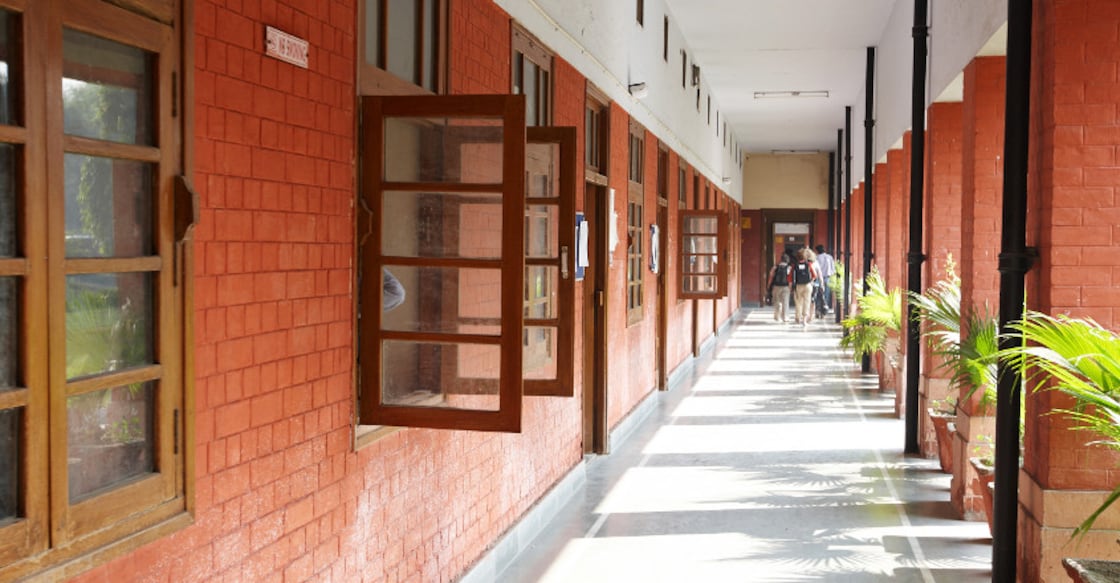Kerala's higher education system takes one step forward, two steps back

Mail This Article
“Higher Education in Kerala - what is wrong?” was the question asked of me at a leadership programme at the Xavier Institute for Management and Entrepreneurship (XMIE) Kochi. My answer was simple. “ We are preparing our students for the 21st century with a 19th-century mindset and a 20th-century syllabus.” Higher education around the world has changed in the last 10 years more than it did in the last one hundred years, but we have remained shackled in our practices, procedures and ideologies. If we go on like this, “God alone can save his country”, as stated by one of our best educationists, the late Prof. NR Madhava Menon.
About eight years ago, the then Kerala State Higher Education Council (KSHEC) had identified six areas in higher education which required immediate attention: infrastructure, teachers training, use of technology, autonomy, research and internationalisation. The Council worked on these and related issues diligently and submitted more than 16 reports to the Government. Most of them still remain buried in the Department of Higher Education because of lethargy, turf war and ideological differences. Happily, I find that the present Council has picked up a report on the establishment of a Kerala State Assessment and Accreditation Council (KSAAC) and I hope it will be established essentially as an academic audit system. The earlier idea of multiple accreditation agencies being developed for national accreditation is not being encouraged by the NAAC (National Assessment and Accreditation Council).
The unkindest cut of all by the KSHEC is the effort to destroy the one legacy the Council itself had succeeded to establish. Twenty autonomous colleges were approved by the UGC on the basis of a legislation approved by the Kerala legislature on the basis of a KSHEC report prepared by a Committee headed by Prof. NR Madhava Menon. These were the best colleges in the state, selected on the basis of the rigorous criteria prescribed by the UGC. Autonomy was granted only in academic matters to enable the colleges to decide what to teach, how to teach and how to assess the students. This was a game-changing development in Kerala, which was the only state, which did not have a single autonomous college in the state.
While some colleges embraced the new system wholeheartedly, some others, particularly the government colleges, opposed it tooth and nail. The University College, Thiruvananthapuram, did not even permit the UGC inspectors to enter the premises. But those colleges, which faithfully implemented the system vastly improved their performance and created history. The only negative aspects of the system were the additional burden on teachers and introduction of additional self-financing courses as the Government would not fund the new courses.
Opposition to the.new system came from various sources, primarily from the Universities, which felt deprived of their authority to oversee these colleges. Impediments were created to destroy the system. For instance, the legislation had stipulated that if no response was received from the University within 30 days after a proposal was sent to them by an autonomous college, the proposal would be taken as approved. To counter this, one University responded to every proposal asking the college not to take action till further notice! In spite of these impediments, most of the autonomous colleges did extremely well, increasing efficiency and expeditious announcement of results. For the first time Kerala moved with the times and introduced a reform measure of immense significance.
The change of government in Kerala marked the beginning of the decline of autonomous colleges. The Committee established to oversee the new system was disbanded making it necessary for colleges to go to court to redress their grievances. The Universities stopped approving proposals from the autonomous colleges for courses and the like and made their functioning impossible. The situation became worse than before in these colleges. The Government took an ambiguous position on autonomy by inviting engineering colleges to apply for it and there were reports of autonomy being given to some more colleges.
The latest news from KSHEC is that a Committee established by it has come to the conclusion that autonomy is undesirable and that it should be abandoned. This is two steps back after we had taken one step forward. The Committee has done a hatchet job by giving a recommendation the Government wanted to hear. The Government cannot cancel the autonomy given by the UGC, but it can strangle these colleges by regressive measures.
Those of us who believe that India should have a liberal education system should feel ashamed that we are abandoning a step that was taken after considerable thought and deliberation. All safeguards were provided to maintain the necessary controls even on autonomous colleges. It will be a sad day if the Government abandons autonomy and tighten its grip overp the system and take higher education two steps backward. I hope that good sense will revail and we shall continue with the autonomous colleges. Otherwise even God cannot help his own country in educational reform.


